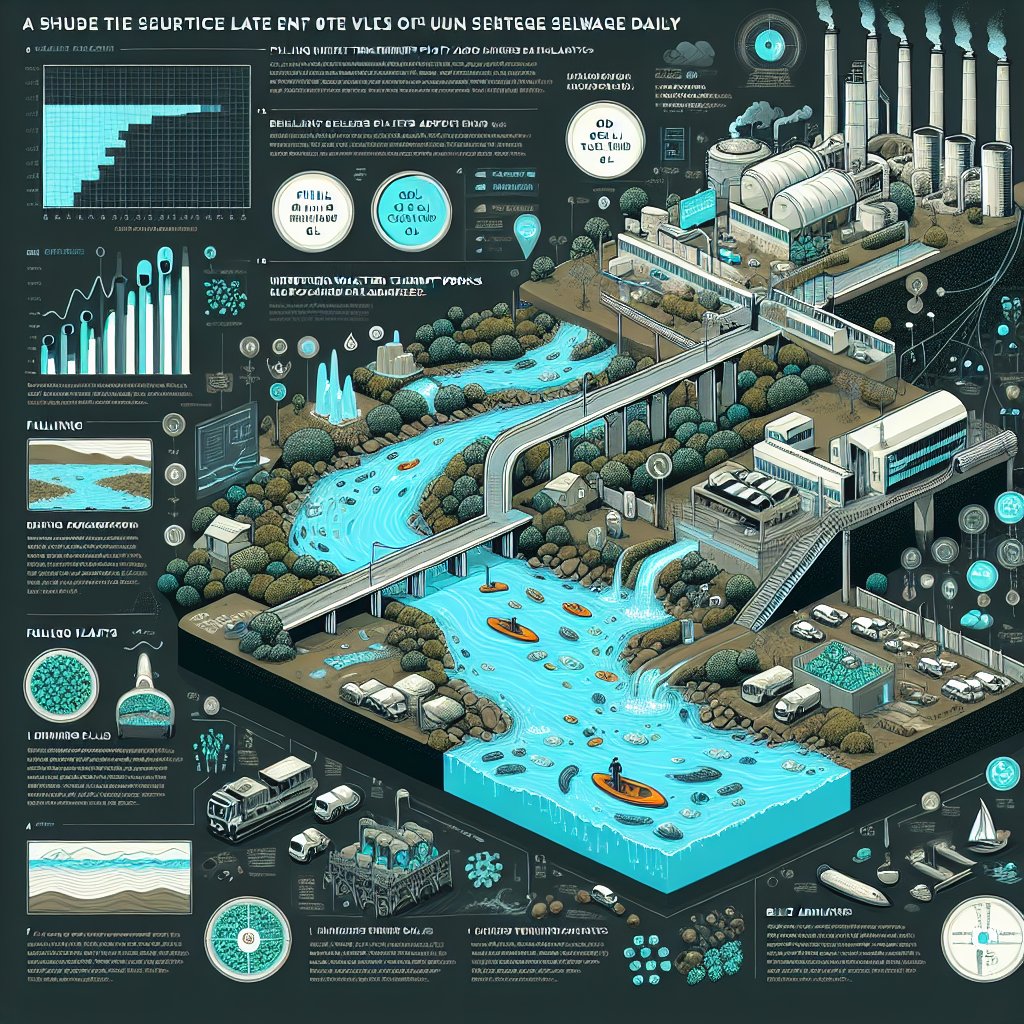Image created by AI
Umgeni River's E. coli Crisis: Urgent Action Needed to Save Durban's Waterways
The Umgeni River, once the pride of Durban for its natural beauty and recreational value, is now a river of sewage, with eThekwini's failing treatment plants pumping over four million litres of insufficiently treated waste daily. Consistent findings have shown E. coli levels are thousands of times above acceptable figures, posing an escalating health risk and environmental hazard.
Talbot laboratory and Adopt A River's water quality tests have repeatedly detected excessive E. coli bacteria, primarily stemming from the Fredville and Northern Waste Water Treatment Works (WWTWs). These plants operate below minimum compliance, contributing to substantial contamination. Reports from the Department of Water and Sanitation confirm these treatment works have been incapable of sufficiently cleaning sewage since at least 2016.
Concerningly, sample analyses have reported E. coli figures reaching millions of colony forming units (cfu) per 100ml of water, grossly surpassing the department's guideline of 1,000cfu/100ml for treated effluent. Distressingly, near the Northern WWTW effluent release points and downstream locations such as the Kingfisher Canoe Club, readings have skyrocketed alarmingly.
Municipal spokesperson Gugu Sisilana cites the main contamination sources as sewer overflows from blockages and vandalised infrastructure, aggravated by public misuse. However, experts like Wile Jonathan Erasmus, Manager of WaterCAN in KwaZulu-Natal, and Casey Pratt of the Litterboom Project argue that the primary culprit is the subpar functioning of the Northern WWTW.
The municipality's response addresses the issue with pledges to repair and upgrade treatment facilities and routine water quality monitoring at Blue Lagoon. The call to residents is clear: Cease the abuse of the sewer system to mitigate pollution. Yet, statements and actions are one thing; tangible improvements in the river's health will be the true measure of success.
Rick Kennedy, a Durban North resident, voices the community's frustration, lamenting the decline of the Umgeni River, which now poses dangers to paddlers and wildlife alike. The once-thriving ecosystem is at stake, with experts warning of diminished biodiversity and compromised human health.
In this crisis, urgent action is imperative. The integrity of the Umgeni River's water quality—and with it, the environmental and recreational allure of Durban—hangs in the balance.










